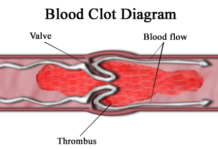By DaJ Cameron; Farnsley Middle School (Louisville, KY)
Teacher: Marsha Buerger
“I knew something was wrong,” my uncle, Kamar Lewis, Sr. said. My 16-year-old cousin, Kamar Lewis Jr., was looking dehydrated and his stomach was hurting. My aunt and uncle were worried something was wrong, and on July 12, 2015, my uncle took him to the hospital. The doctors ran a few tests on him and confirmed that he had Crohn’s disease.
According to the National Institutes of Health (NIH), Crohn’s disease is a chronic disease that causes inflammation and irritation to your digestive system. According to NIH, 20% of people in America have Crohns disease.
According to the Mayo Clinic, Crohn’s disease has different symptoms, such as diarrhea, fevers, abdominal pain and cramping, blood in your stool, mouth sores, and weight loss.
According to Lewis, Jr., he constantly has stomach cramps (abdominal pain), suffers very low appetite, always feels like he is going to throw up, occasionally has diarrhe a, becomes very weak (feels like he has no energy), and gets dehydrated quickly.
a, becomes very weak (feels like he has no energy), and gets dehydrated quickly.
WebMD states that Crohn’s disease may be caused by a combination of three things: The environment, immune system problems, and genetic factors.
Environmental factors may help trigger Crohn’s disease. These environmental factors may include microbes, such as bacteria or viruses, and/ or cigarette smoke. According to National Center for Biotechnology Information, smoking tobacco increases the chance of getting Crohn’s disease.
According to NIH, another cause that may trigger Crohn’s disease is the immune system. When your immune system tries to fight off the invading microorganism, an abnormal immune system causes the immune system to attack all of the cells in the digestive tract.
The last factor is genetics. Brothers, sisters, and children of parents with inflammatory bowel disease (IBD ) are slightly more likely to develop the disease.
An estimated 10–20% of people that have Crohn’s disease have at least one family member who has the disease. Crohn’s can affect any ethnic group. However Caucasians and people of Jewish descent have a higher risk of getting the disease.
There are many kinds of treatments for Crohn’s disease. According to Medicinenet.com, Infliximab (Remicade), Stelara, and Humira are a class of injectable biologic drugs that suppresses the inflammation. With the Humira pen, Lewis, Jr., has to inject himself in the leg, count to 10 to make sure all of the medication goes into his body, and the Humira pen will turn yellow at the top to show all the medication is completely out of the Humira pen and into his body.
“ As long as you know how to take care of yourself, you will be okay,” he said.

This work is licensed under a Creative Commons Attribution-NonCommercial-NoDerivs 3.0 Unported License














Nice story.